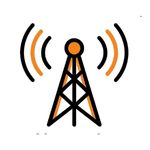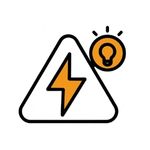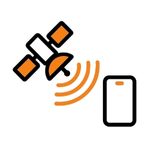
South Africa has one of the most competitive mobile markets in Africa, with several established providers offering a wide range of voice, data, and value-added services. Strong infrastructure investment, oversight by the Independent Communications Authority of South Africa (ICASA), and the rapid adoption of 4G and 5G have positioned the sector for steady growth. With over 120 million active connections and exceptionally high smartphone penetration, the mobile industry is central to communication, commerce, and daily life, making it important to understand the strengths and offerings of the leading providers.
Key Takeaways
- Market Leaders: Vodacom and MTN hold the largest share of South Africa’s mobile market, with a combined subscriber base exceeding 85 million. Both providers offer strong nationwide coverage and are widely recognised for network reliability.
- Pre-Paid Dominance: Pre-paid SIM plans make up the majority of mobile connections in South Africa, offering greater flexibility compared to contracts. Competitive bundle pricing and add-ons make them a popular choice for most consumers.
- Network Quality and Innovation: MTN ranks highest for network quality and continues to invest in cutting-edge technology. Recent developments include Africa’s first satellite-to-mobile call, while Cell C and Rain cater to cost-conscious users.
About Arcadia Finance
Borrow with ease through Arcadia Finance. We connect you to 19 reputable lenders regulated by the National Credit Regulator in South Africa. With no application costs and a streamlined experience, you can secure a loan that’s transparent, safe, and tailored to you.
Mobile Networks in South Africa
South Africa’s mobile network operates on the GSM standard, allowing most international visitors to use their existing handsets without difficulty. While 2G and 3G remain available, most users rely on 4G LTE for everyday connectivity, and Vodacom’s launch of 5G in Johannesburg and Cape Town in May 2020 marked a significant milestone. Mobile coverage is generally strong in urban centres, with providers offering 80–90% coverage nationwide, though signal strength declines in remote and rural areas. Wi-Fi is widely accessible across major cities, with hotels, restaurants, and cafés often providing free connections, though availability can be patchier in rural locations. Despite this convenience, secure networks should be used to protect personal information. South Africa ranked 72nd in the 2023 Digital Quality of Life Index for internet speed, performing well within Africa, though still slower than global leaders such as Singapore and the UAE. Internet costs are comparable to countries like the US, Australia, and New Zealand, but remain higher than much of Europe and Asia.

The South African Mobile Market
South Africa’s telecommunications sector is among the most advanced in Africa, governed by the Independent Communications Authority of South Africa (ICASA) and serving as a regional centre for connectivity and digital solutions. At the beginning of 2025, the country recorded approximately 124 million active cellular mobile connections, which equates to 193 percent of the population, reflecting widespread multi-SIM usage and the growing uptake of eSIM technology.
The number of these mobile connections increased by about 5.2 million, or 4.4 percent, over the year, showing steady growth. Crucially, 97.5 percent of these connections were broadband-capable, meaning that they operated on 3G, 4G or 5G networks. Smartphone ownership is exceptionally high among internet users, with 99.3 percent owning a smartphone, which reinforces mobile-first usage across the country.
South Africa’s smartphone market is also expected to remain dominant within the region. GSMA projects that by 2030, the country will lead in Sub-Saharan Africa for smartphone connections, with 140 million expected by then.
On the regulatory front, ICASA is preparing a new spectrum auction to support future services including 6G and satellite connectivity. The regulator’s Draft National Radio Frequency Plan (NRFP) 2025 outlines proposed allocations and seeks public input. The auction timeline currently targets the 2025/26 financial year.
Top 10 Mobile Phone Operators in South Africa
South Africa is home to several major mobile network providers, each capable of supplying customers with a SIM card or handset. The most prominent operators include:
| Rank | Provider | Estimated Subscriber Count | Network Performance | Consumer Focus |
|---|---|---|---|---|
| 1 | Vodacom | ~50–51 million | Strong coverage and infrastructure | Widely recognised brand, broad appeal |
| 2 | MTN | ~35–36 million | Excellent quality scores | Innovative services; solid customer sentiment |
| 3 | Telkom | ~24 million | Competitive offering, leveraging legacy assets | Value-driven and expanding presence |
| 4 | Cell C | ~8.5 million (or ~13–17 million in reports) | Mixed performance, improving reliability | Focus on affordability and Mobile Virtual Network Operator (MVNO) hosting |
| 5 | Rain | ~1 million (data-only subscribers) | Data-centric, growing 5G infrastructure | Attractive to data-heavy users |
| 6–10 | Others | Smaller players (e.g., Saicom, Huge, MVNOs) | Specialised capabilities | Often target niche or business-oriented markets |
All of these companies supply a wide variety of pre-paid SIM bundles and post-paid contract options. Customers should assess the contents of each package and compare prices carefully to decide which arrangement is most suitable.
Pre-Paid vs Mobile Contracts
As of 2021, pre-paid mobile plans accounted for around 84% of all mobile connections in South Africa, leaving only 16% of users on contract plans, which tend to be less flexible in the local market.
Mobile providers in the country offer numerous add-on bundles and promotional packages for pre-paid services, making them generally more cost-effective than standard contract agreements. Choosing a pre-paid SIM card is often the most practical route if you already have a handset. However, if you are staying in South Africa for a prolonged period or require a new phone, a contract plan could provide better long-term value.

Choosing the Right Provider
When selecting a mobile provider in South Africa, the decision often comes down to four main considerations: network coverage and quality, pricing, value-added services, and resilience during load-shedding. Each of these factors influences how suitable a provider will be for different types of customers.

Network Coverage and Quality
MTN has built a strong reputation for delivering the fastest overall speeds in the country. Its average download rate of 47 Mbps is nearly 50% faster than that experienced by Vodacom users. Independent evaluations place MTN’s Network Quality Score at 9.66, ahead of Vodacom’s 8.14, with Cell C, Telkom, and Rain scoring 6.09, 5.24, and 4.75 respectively. In recent years, MTN has modernised over 400 network sites and achieved a network availability score exceeding 98%, ensuring both broader reach and greater reliability.

Pricing
For consumers focusing on affordability, Cell C is one of the strongest options. It is well known for promotions such as 4 GB for R45, often with a split between standard and night-time data. Community feedback highlights offers like 750 MB plus 1 GB night data for R80 or 1 GB plus 2 GB night data for R100, positioning Cell C as an appealing choice for those looking to reduce monthly costs without sacrificing too much in terms of connectivity.

Value-Added Services (Fintech, Data-Only Options)
South African mobile providers are increasingly offering services beyond basic connectivity. MTN has developed an extensive fintech ecosystem through its MoMo (Mobile Money) platform, which supports functions such as payments, e-commerce, insurance, lending, and international remittances. In the first quarter of 2025 alone, MoMo processed 5.5 billion transactions valued at US$95.3 billion. Vodacom has also strengthened its financial services through Vodapay and other mobile-based products, with long-term plans to significantly increase fintech revenue by 2030. In the data-only segment, Rain continues to position itself as a dedicated provider with a focus on standalone 5G infrastructure.

Resilience During Load-Shedding
Given South Africa’s ongoing electricity challenges, network resilience is a vital consideration. MTN has committed significant investment to keep services running during power outages, including the installation of battery systems, hybrid generators, improved site security, and trials of renewable energy solutions. The company’s capital commitments in this area are expected to reach R1.9 billion. Other operators are also enhancing resilience, but MTN’s scale and consistency in this area make it a notable leader.

Future-Proofing and Cutting-Edge Connectivity
For consumers seeking to stay ahead with the latest technology, satellite-backed services are emerging as a key development. MTN recently completed Africa’s first satellite-to-mobile phone call using a standard device and Low Earth Orbit satellite technology, demonstrating the potential for wider coverage in underserved regions. Broader satellite initiatives are also under way, including Paratus’s “Connect2Care”, which aims to deliver affordable LEO satellite connectivity to clinics and community centres across Africa.
Top Mobile Brands by Sales in South Africa
Vodacom customers most frequently purchased devices from Samsung, followed by Hisense, Huawei, Nokia, Honor, Mobicel, Apple, and Oppo.
For MTN, the leading choice was Samsung, with strong sales also seen for Apple, Mobicel, Honor, and Hisense.
On Takealot, the best-selling brand was Samsung, while Xiaomi, Apple, Huawei, and Hisense also ranked highly among buyers.
Most Popular Mobile Brands by Online Traffic
| Brand | April 2024 Share | April 2025 Share | Change (pp) | Rank Movement | Notes |
|---|---|---|---|---|---|
| Samsung | 50.88% | 51.86% | +0.98 | Unchanged | Remains top brand |
| Apple | 16.02% | 16.66% | +0.64 | Unchanged | Holds 2nd place |
| Huawei | 13.39% | 10.45% | -2.94 | Unchanged | Still 3rd despite decline |
| Honor | 2.43% | 4.66% | +2.23 | ▲ Up 2 | Significant growth |
| Xiaomi | 3.67% | 3.93% | +0.26 | ▼ Down 1 | Slight growth but lost rank |
| Oppo | 3.47% | 3.14% | -0.33 | ▼ Down 1 | Decline in share |
| Vivo | 1.79% | 1.93% | +0.14 | Unchanged | Modest growth |
| Tecno | 1.22% | 1.13% | -0.09 | ▲ Up 1 | Small decline but better rank |
| Nokia | 1.53% | 0.83% | -0.70 | ▼ Down 1 | Sharp drop |

How to Choose the Right Mobile Brand for You
Selecting the right mobile brand in South Africa comes down to more than just appearances or advertising. With so many options available, it is important to match a brand’s strengths with your personal needs and budget.
Budget vs Premium
Your budget is often the starting point when deciding on a mobile brand. Premium brands such as Apple and Samsung offer flagship models with cutting-edge technology, sleek designs, and long software support. However, these devices come at a significantly higher cost. On the other hand, brands like Xiaomi, Hisense, and Tecno provide affordable smartphones that still deliver good performance for everyday use, making them attractive to cost-conscious buyers.
Performance Needs
If you enjoy gaming, you may need a brand that offers powerful processors, advanced cooling systems, and large batteries, such as Xiaomi, Oppo, or Vivo. For photography enthusiasts, brands like Huawei and Apple stand out with their high-quality camera systems and software enhancements. If you rely heavily on your phone for work, prioritise brands that provide strong battery life, reliable security features, and seamless integration with productivity apps, such as Samsung and Apple.
Availability of Repairs and Support
Even the best smartphones can develop faults over time, so after-sales service should not be overlooked. Choosing a mobile brand with authorised service centres and widespread repair networks across South Africa ensures peace of mind. Samsung and Huawei maintain strong repair support locally, while Apple has official service providers but at a higher cost. For more affordable brands, check whether spare parts and qualified technicians are easily available, as limited support could mean long repair times or difficulties in finding replacements.
Software Updates and Security
Another crucial consideration is how long a brand supports its devices with software updates and security patches. Brands such as Apple and Samsung are known for providing regular updates over several years, which helps extend the life of the device and keeps it secure. In contrast, some budget brands may only offer one or two years of updates, leaving devices vulnerable and outdated sooner. If you plan to keep your phone for a long time, this is a key factor to keep in mind.
Conclusion
South Africa’s mobile market is highly competitive, with providers catering to a wide range of user needs from premium network performance to budget-friendly data services. Vodacom and MTN continue to dominate in both subscriber numbers and coverage, while Telkom, Cell C, and Rain appeal to customers seeking value or niche services. With a rapidly expanding smartphone base, growing 5G adoption, and upcoming spectrum allocations by ICASA, the market is set for further innovation. Whether prioritising speed, cost, or future-proof connectivity, consumers have a variety of strong options to choose from.
Frequently Asked Questions
MTN and Vodacom both offer extensive nationwide coverage, with MTN scoring slightly higher in independent network quality tests. Coverage is strongest in urban areas and along major transport routes.
Pre-paid plans allow users to pay upfront for data, calls, and SMS without being tied to a fixed-term agreement, offering more flexibility. Contract plans often include a handset and can provide better long-term value for heavy users.
No, 5G is currently concentrated in major cities such as Johannesburg, Cape Town, and Durban, with coverage gradually expanding to more areas. Availability varies by provider, with Vodacom and MTN leading the rollout.
Cell C and Rain are often the most affordable for data, with competitive bundle pricing and promotional offers. Rain specialises in data-only services and is popular with high-volume internet users.
South Africa offers mobile number portability, allowing customers to retain their number when moving to a new network. The process usually takes 24 to 48 hours and requires a valid RICA-registered SIM.
Fast, uncomplicated, and trustworthy loan comparisons
At Arcadia Finance, you can compare loan offers from multiple lenders with no obligation and free of charge. Get a clear overview of your options and choose the best deal for you.
Fill out our form today to easily compare interest rates from 19 banks and find the right loan for you.

